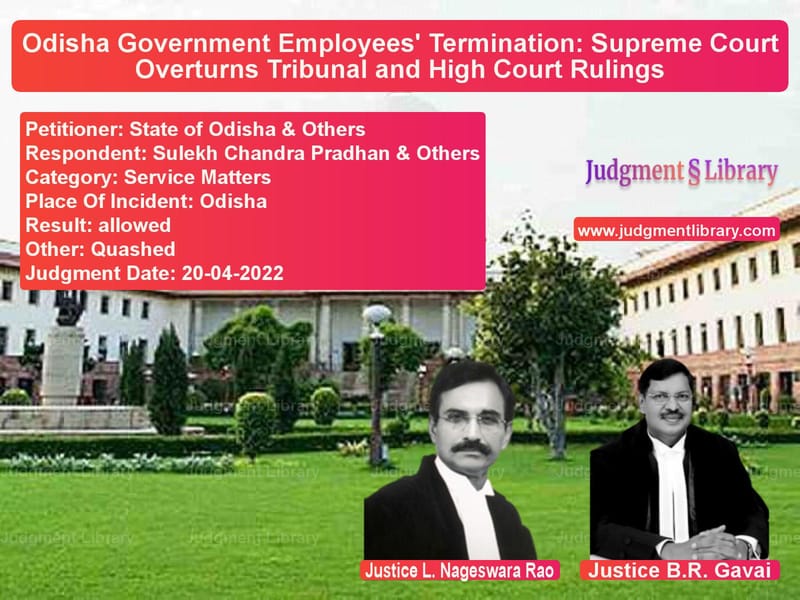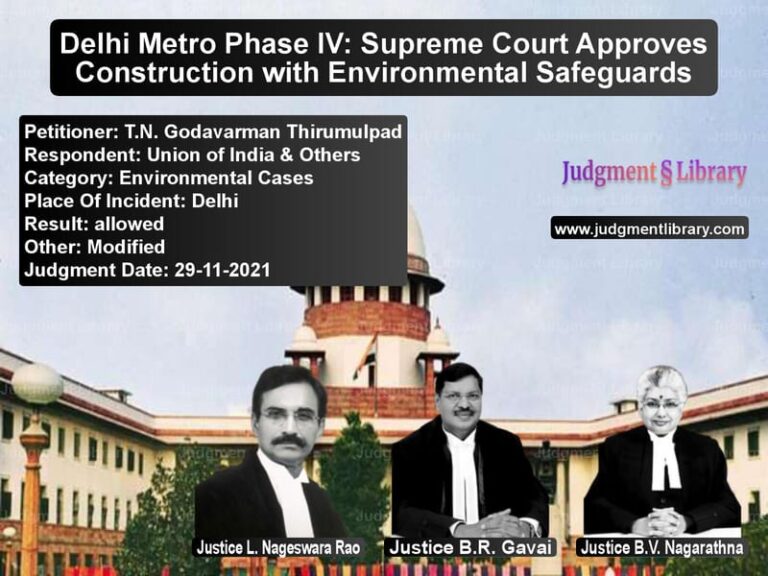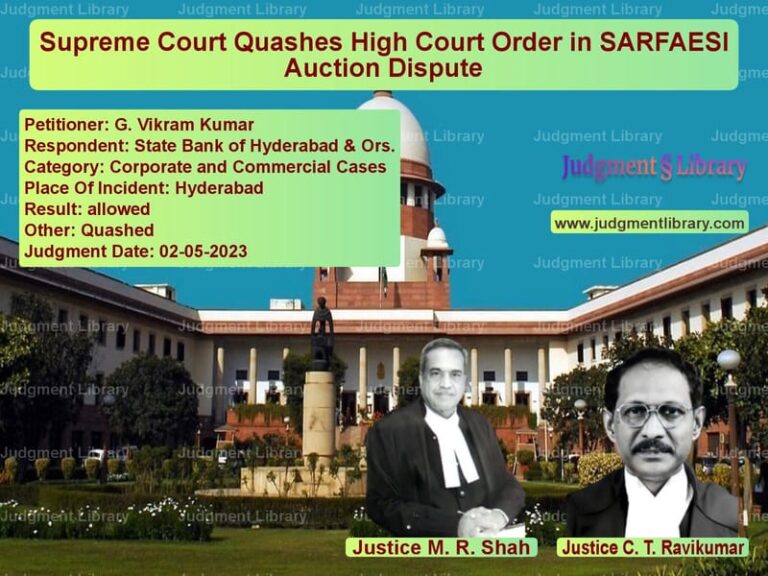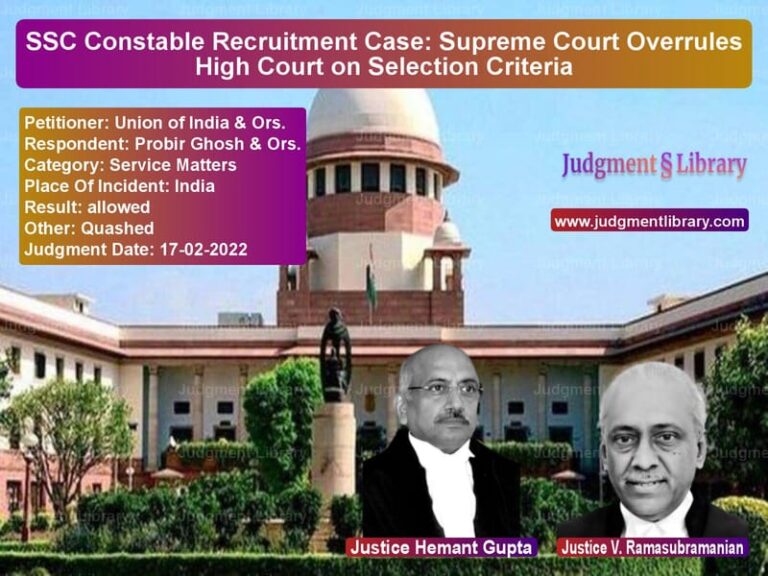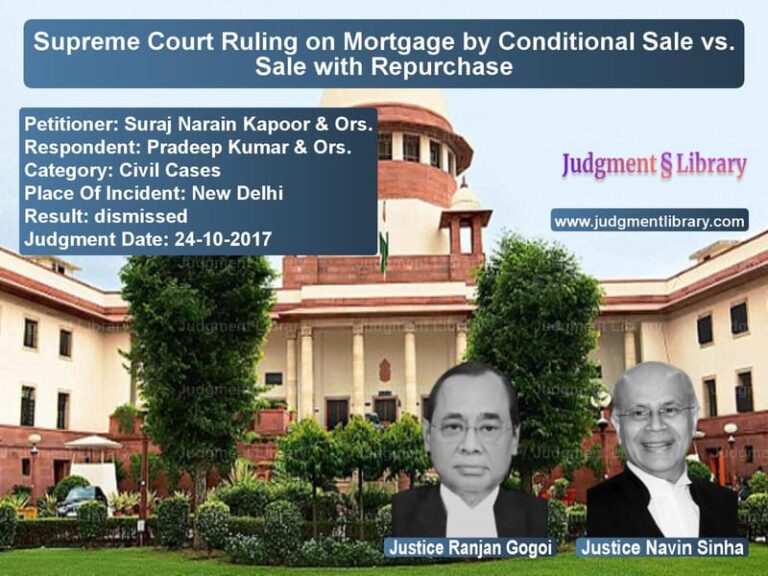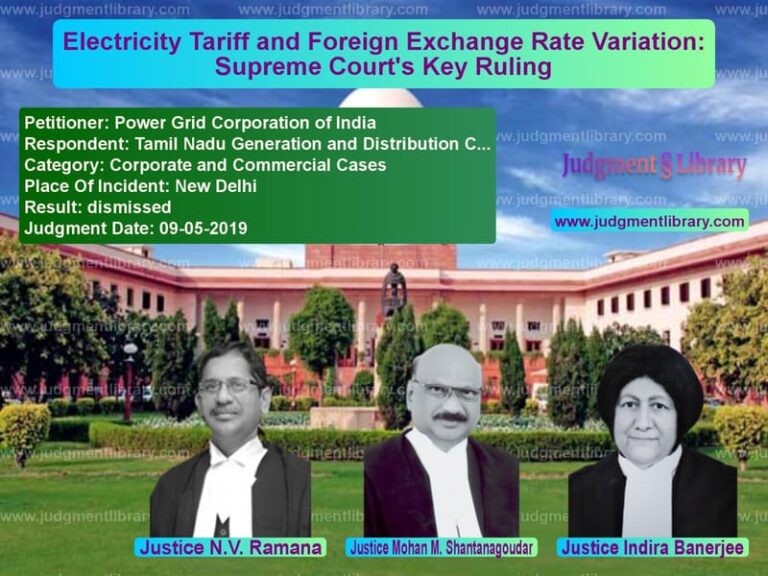Odisha Government Employees’ Termination: Supreme Court Overturns Tribunal and High Court Rulings
The Supreme Court of India recently ruled in favor of the State of Odisha in the case of State of Odisha & Others vs. Sulekh Chandra Pradhan & Others, overturning decisions by the Odisha Administrative Tribunal and the Odisha High Court. The case involved the termination of Hindi teachers in Middle English (M.E.) Schools who had been appointed outside the established recruitment rules.
The ruling highlights the importance of following statutory procedures in government appointments and ensures that judicial bodies do not overstep their role by granting relief contrary to legal provisions. The Supreme Court upheld the state government’s decision to terminate the teachers, citing their appointments as irregular and beyond sanctioned posts.
Background of the Case
The dispute began when the State of Odisha took over M.E. Schools in 1991. While the takeover included teaching and non-teaching staff, Hindi teachers were excluded, leading to automatic termination. Several affected teachers approached the High Court, challenging their removal.
Initially, the High Court directed the state government to consider their grievances. In response, the government decided to adjust 137 Hindi teachers in vacant posts as a one-time measure. However, later scrutiny revealed that many of these appointments were made beyond the sanctioned strength of staff, leading to their termination in 2014.
The affected teachers challenged their termination before the Odisha Administrative Tribunal, which ruled in their favor, reinstating them as regular government employees. The Odisha High Court upheld this decision. The state government then appealed to the Supreme Court.
Petitioners’ Arguments
The State of Odisha, represented by Senior Counsel Chander Uday Singh, argued that:
- The appointments were made contrary to the Odisha Education (Recruitment and Conditions of Service of Teachers and Members of the Staff of Aided Educational Institutions) Rules, 1974.
- The Tribunal failed to consider earlier decisions rejecting similar claims.
- The teachers worked only for limited periods, mostly due to interim orders from courts.
- The High Court misinterpreted the facts by stating that the teachers had worked for two decades when, in reality, they had worked for only about four years.
Respondents’ Arguments
The Hindi teachers, represented by Advocate Gaurav Agrawal, countered that:
- They were appointed based on a government policy framed following a High Court directive.
- They underwent a detailed scrutiny process before being adjusted in government service.
- Their termination violated principles of natural justice as no proper hearing was given.
Supreme Court’s Judgment
The Supreme Court bench, comprising Justices L. Nageswara Rao and B.R. Gavai, ruled in favor of the State of Odisha, setting aside the orders of the Odisha Administrative Tribunal and the High Court. The Court made the following key observations:
Read also: https://judgmentlibrary.com/supreme-court-rules-on-territorial-jurisdiction-in-labour-disputes/
- Violation of Recruitment Rules: The Court ruled that the appointments were made without following statutory procedures and were therefore void.
- Erroneous Tribunal and High Court Decisions: The Court criticized the Tribunal for ignoring its own earlier rulings and the High Court for overlooking factual errors.
- Limited Work Period: The Court noted that the teachers had worked for only a few years and were not entitled to claim long-term employment benefits.
- No Automatic Regularization: The judgment reaffirmed that individuals appointed irregularly cannot claim regularization as a right.
Implications of the Judgment
This ruling has significant implications for government employment and judicial review of administrative actions:
- Ensuring Fair Recruitment: It reinforces the principle that all government appointments must follow established recruitment procedures.
- Preventing Backdoor Entries: The judgment prevents unauthorized appointments from being legitimized through prolonged litigation.
- Judicial Propriety: The ruling emphasizes that lower judicial bodies must follow established precedents and not contradict prior decisions.
Conclusion
The Supreme Court’s decision in State of Odisha vs. Sulekh Chandra Pradhan upholds the sanctity of recruitment laws in government employment. By overturning the Tribunal and High Court rulings, the Court has reinforced that appointments made in violation of statutory rules cannot be legitimized through judicial intervention. This ruling ensures that employment in government service remains fair, transparent, and merit-based.
Petitioner Name: State of Odisha & Others.Respondent Name: Sulekh Chandra Pradhan & Others.Judgment By: Justice L. Nageswara Rao, Justice B.R. Gavai.Place Of Incident: Odisha.Judgment Date: 20-04-2022.
Don’t miss out on the full details! Download the complete judgment in PDF format below and gain valuable insights instantly!
Download Judgment: state-of-odisha-&-ot-vs-sulekh-chandra-pradh-supreme-court-of-india-judgment-dated-20-04-2022.pdf
Directly Download Judgment: Directly download this Judgment
See all petitions in Employment Disputes
See all petitions in Recruitment Policies
See all petitions in Termination Cases
See all petitions in Judgment by L. Nageswara Rao
See all petitions in Judgment by B R Gavai
See all petitions in allowed
See all petitions in Quashed
See all petitions in supreme court of India judgments April 2022
See all petitions in 2022 judgments
See all posts in Service Matters Category
See all allowed petitions in Service Matters Category
See all Dismissed petitions in Service Matters Category
See all partially allowed petitions in Service Matters Category

